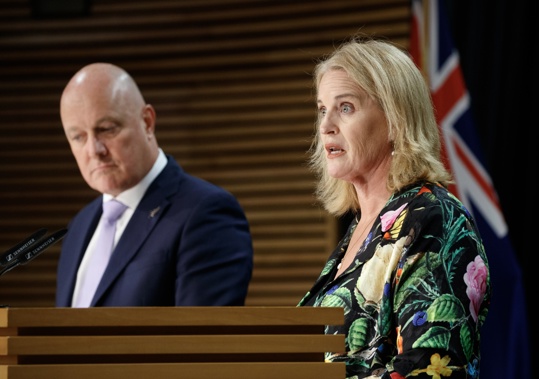
People receiving the Jobseeker benefit are already under pressure six months into the coalition Government's reign, with an increase of sanctions in the latest quarter and newly announced compulsory work seminars.
The coalition Government had promised to increase the use of benefit sanctions with Prime Minister Christopher Luxon using his State of the Nation speech in February to tell beneficiaries taking advantage of the welfare system that the “free ride” was over.
This has already become clear, according to the Ministry of Social Development (MSD), as statistics revealed an increase of 21.5 per cent in sanctions imposed on Jobseeker beneficiaries since September 2023.
In the September quarter, a total of 6,177 sanctions were imposed. This climbed to 7,508 in the March 2024 quarter.
Now Minister for Social Development and Employment Louise Upston has revealed that those who receive the Jobseeker benefit will have to attend a new Kōrero Mahi – Let’s Talk Work seminar within the first fortnight.
The seminars, according to the MSD's Graham Allpress, will be managed by individual service centres. The seminars are held in groups with up to 15 job seekers, as well as Work and Income case managers and work brokers.
After a short presentation outlining what support is available, the Work and Income team will talk to each attendee individually about their job search, helping them put a CV together and finding out where to look for jobs.
All new Jobseeker beneficiaries who have work obligations will have to attend the seminars, including those on it for health reasons, Upston told reporters at a job fair in Porirua yesterday. It is part of the Government's big picture to get 50,000 people off the benefit by 2030.

Currently the Jobseeker benefit serves 188,000 individuals.
Upston told Newstalk ZB this morning that many beneficiaries had not been in contact with the Ministry of Social Development since receiving their first paycheck and that was partly what the changes aimed to change.
"If you don't have one-on-one contact, if you're not talking to MSD, or not in the office then you're not connecting with a work broker and the jobs that are being offered," she said.
"The reality is the longer you're out of a job, the harder it is to reconnect, which is why this opportunity within the first two weeks is really critical."
In February, Upston had announced the ministry would begin work check-ins for people who had been on the Jobseeker benefit for six months, with a particular focus on young people.
Upston and PM Chris Luxon also signaled at the time there would be a much stronger use of sanctions.
Under the existing sanctions regime, if a person did not meet work preparation obligations without a “good and sufficient reason” their benefit would be reduced by 50 per cent for four weeks. After a second breach, that would be extended to 13 weeks for someone with dependent children, or suspended altogether if they did not have children.

Allpress told Newstalk ZB Plus that most people who receive a benefit meet their obligations so do not face sanctions. Everyone is offered opportunities to re-comply before their payments are reduced.
"If someone does not attend the seminar when asked to, we would follow up with them and find out their reason for not attending. If they did not have a good and sufficient reason that would be an obligation failure," said Allpress.
"If they did not attend the follow-up seminar without a good and sufficient reason or we aren’t able to make contact with them, we would then take steps to sanction them after five working days."
The Welfare Expert Advisory Group, founded in 2018, considered the use of sanctions to be “problematic” as there was little evidence they encouraged people back into work.
“Recent studies recommend moving away from such an approach towards more personalised services,” the group reported.
However, Allpress said it is usually acknowledged that obligations and sanctions sit alongside wider institutional settings.
"Obligations and sanctions are often embedded within a wider package of policy settings, programmes and services, and teasing apart their separate direct impact can be challenging," he said.
"Sanctions must be clearly communicated, directly related to core expectations, proportionate, carefully applied and alongside appropriate support. There must also be systems in place that make it easy for people to promptly take action to address the sanction and regain full eligibility."
Take your Radio, Podcasts and Music with you









